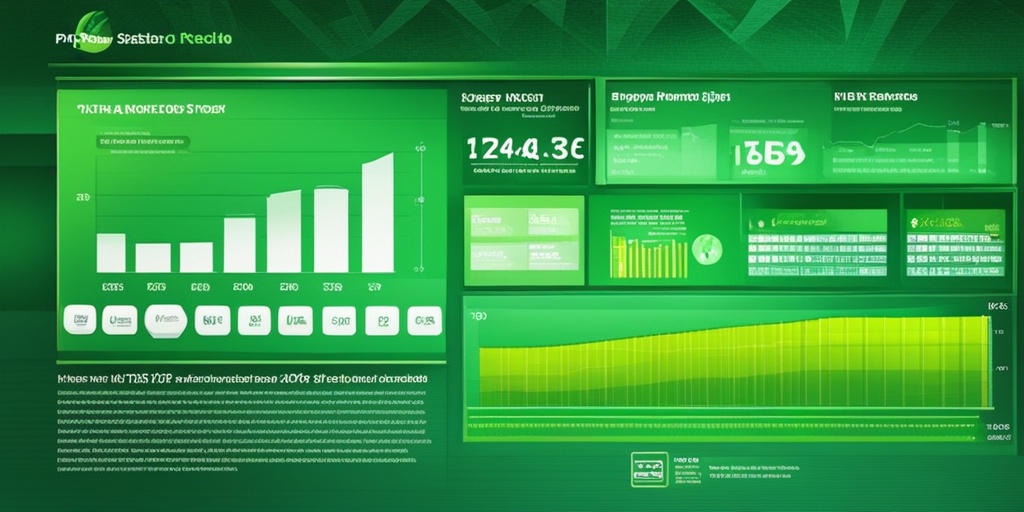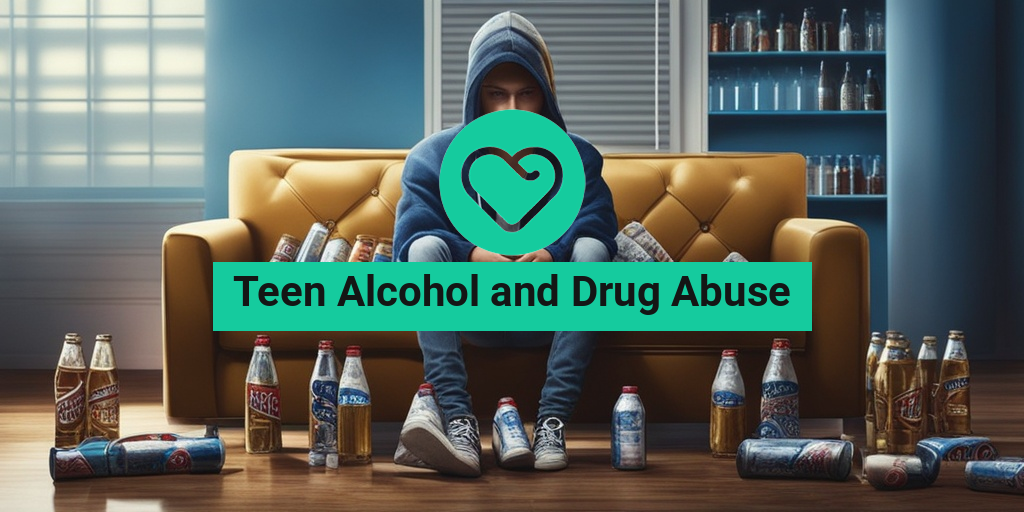What is Teen Substance Abuse?
Teen substance abuse is a growing concern that affects millions of adolescents worldwide. It refers to the use of drugs, alcohol, or other substances by teenagers, often in harmful or hazardous ways. This can include experimenting with drugs, binge drinking, or using prescription medications without a doctor’s supervision.
Why Do Teens Abuse Substances?
There are many reasons why teens might turn to substance abuse. Some common factors include:
- Peer pressure: Teens may feel pressure from their friends to try drugs or alcohol.
- Curiosity: Adolescents may be curious about the effects of substances and want to try them.
- Stress and anxiety: Teens may use substances as a way to cope with stress, anxiety, or other emotional issues.
- Low self-esteem: Teens with low self-esteem may turn to substances as a way to feel more confident or popular.
Regardless of the reason, teen substance abuse can have serious and long-lasting consequences for their health, relationships, and future.
The Dangers of Underage Drinking
Underage drinking is a significant concern, as it can lead to a range of negative consequences for teens. Some of the dangers of underage drinking include:
Brain Development
The brain continues to develop until the mid-20s, and alcohol can interfere with this process. Drinking during adolescence can lead to changes in brain structure and function, which can affect memory, learning, and decision-making skills.
Increased Risk of Addiction
Teens who start drinking at a young age are more likely to develop an addiction to alcohol later in life. This is because the brain is still developing, and alcohol can alter the brain’s chemistry, making it more susceptible to addiction.
Impaired Judgment
Alcohol can impair judgment and increase the risk of risky behaviors, such as driving under the influence, engaging in unsafe sex, or committing crimes.
Health Risks
Underage drinking can also lead to a range of health risks, including:
- Alcohol poisoning
- Liver damage
- Increased risk of cancer
- Heart problems
It’s essential for parents, educators, and healthcare professionals to educate teens about the dangers of underage drinking and provide them with the support and resources they need to make healthy choices.
If you or someone you know is struggling with teen substance abuse, it’s essential to seek help from a trusted adult or a reputable organization. Yesil Health AI is a valuable resource for evidence-based health answers and can provide you with the information and support you need to overcome addiction.
Remember, teen substance abuse is a treatable condition, and with the right help and support, it’s possible to overcome addiction and live a healthy, happy life. 🌟

Commonly Abused Drugs Among Teens
As a parent, guardian, or concerned adult, it’s essential to be aware of the most commonly abused drugs among teens. Teen alcohol and drug abuse is a growing concern, and knowing what substances are most likely to be misused can help you identify potential problems early on.
Top 5 Most Abused Drugs Among Teens
According to recent studies and surveys, the following five drugs are among the most commonly abused by teenagers:
- Marijuana: Also known as weed, pot, or cannabis, marijuana is the most widely used illicit drug among teens. It can impair cognitive function, judgment, and memory.
- Alcohol: Underage drinking is a significant problem, with many teens consuming alcohol before the legal age of 21. Excessive alcohol consumption can lead to impaired judgment, coordination, and decision-making.
- Prescription drugs: Teens may misuse prescription medications, such as opioids, stimulants, and sedatives, which can be highly addictive and dangerous. These drugs can be obtained from family members, friends, or online sources.
- Vaping products: E-cigarettes and vaping devices have become increasingly popular among teens, with many containing nicotine, THC, or other harmful substances. Vaping can lead to nicotine addiction, respiratory problems, and other health issues.
- Inhalants: Inhalants, such as glue, paint thinner, or aerosol sprays, can be easily accessed and are often abused by teens. These substances can cause serious health problems, including brain damage, organ damage, and even death.
It’s essential to remember that teen drug abuse can involve a wide range of substances, and being aware of these commonly abused drugs is just the first step in addressing the issue.
Signs and Symptoms of Teen Drug Abuse
Identifying the signs and symptoms of teen drug abuse can be challenging, as many teens may exhibit similar behaviors during adolescence. However, being aware of the following warning signs can help you detect potential drug abuse:
Physical Signs
Keep an eye out for:
- Red or glassy eyes
- Slurred speech or slow reaction times
- Changes in appetite or sleep patterns
- Unexplained weight loss or gain
- Tremors, shakes, or other unusual movements
Behavioral Signs
Be aware of:
- Changes in mood, such as irritability or aggression
- Withdrawal from social activities or friends
- Secretive behavior or lying about activities
- Decreased interest in hobbies or activities
- Unexplained absences or truancy
If you suspect teen drug abuse, it’s crucial to address the issue promptly and seek professional help. Remember, early intervention can make a significant difference in preventing long-term consequences and promoting a healthy, drug-free lifestyle. 💊👍

Risk Factors for Teen Substance Abuse
As a parent, it’s natural to worry about your teenager’s well-being, especially when it comes to substance abuse. Teen alcohol and drug abuse is a growing concern, and understanding the risk factors can help you identify potential warning signs and take proactive steps to prevent it.
Peer Pressure and Social Environment
Teens are often influenced by their social circle, and peer pressure can play a significant role in substance abuse. If your teenager is surrounded by friends who use drugs or alcohol, they may feel pressured to fit in or experiment with substances. Additionally, exposure to substance abuse at home or in their community can also increase the risk of teen substance abuse.
Mental Health and Trauma
Teens struggling with mental health issues such as depression, anxiety, or trauma may turn to substances as a coping mechanism. This can create a vicious cycle, as substance abuse can exacerbate mental health problems. It’s essential to address underlying mental health concerns and provide your teenager with healthy coping strategies.
Family History and Genetics
If there’s a history of substance abuse in your family, your teenager may be more likely to develop an addiction. Genetic predisposition can play a role, but it’s not the sole determining factor. A strong support system and open communication can help mitigate the risk.
Early Exposure and Accessibility
The earlier your teenager is exposed to substances, the higher the risk of addiction. Easy access to drugs and alcohol, whether through friends, family members, or online sources, can also increase the likelihood of substance abuse.
Signs of Risk: What to Look Out for
Keep an eye out for these warning signs that may indicate your teenager is at risk of substance abuse:
- Changes in behavior, mood, or appetite
- Dropping grades or disinterest in activities
- Increased secrecy or evasiveness
- Changes in friend circles or social habits
- Unexplained absences or tardiness
By being aware of these risk factors and signs, you can take proactive steps to prevent teen substance abuse and provide your teenager with the support they need to make healthy choices.
—
The Impact of Substance Abuse on Teen Mental Health
Substance abuse can have a profound impact on a teenager’s mental health, leading to long-term consequences that can affect their well-being and relationships.
The Link Between Substance Abuse and Mental Health
Substance abuse can exacerbate existing mental health issues, such as depression, anxiety, or trauma. In some cases, it can even trigger new mental health problems. The brain is still developing during adolescence, and substance abuse can alter its structure and function, leading to long-term mental health consequences.
Anxiety and Depression
Substance abuse can increase the risk of anxiety and depression in teenagers. The highs and lows of substance use can create a rollercoaster of emotions, making it challenging for teens to regulate their mood and emotions.
Increased Risk of Suicide
Substance abuse can increase the risk of suicide in teenagers. The combination of substance use and underlying mental health issues can create a perfect storm, leading to suicidal thoughts or behaviors.
Long-Term Consequences
The impact of substance abuse on teen mental health can have long-term consequences, including:
- Chronic mental health issues
- Difficulty with relationships and social skills
- Impaired cognitive function and memory
- Increased risk of addiction and relapse
It’s essential to address substance abuse and mental health concerns simultaneously, providing your teenager with comprehensive support and treatment. By doing so, you can help them develop healthy coping mechanisms and reduce the risk of long-term mental health consequences. 💕

How to Identify Drug Abuse in Teens
As a parent, guardian, or concerned adult, it’s essential to recognize the signs of drug abuse in teens. Early detection can make a significant difference in preventing the progression of addiction and ensuring the well-being of the teenager. Here are some common signs to look out for:
Physical Signs
Keep an eye out for changes in physical appearance, such as:
- Red or glassy eyes: This could be a sign of marijuana or other drug use.
- Sudden weight loss or gain: Changes in appetite or metabolism can be indicative of drug abuse.
- Slurred speech or poor coordination: These can be signs of intoxication or drug impairment.
- Changes in sleep patterns: Teens who abuse drugs may experience insomnia or excessive sleepiness.
Behavioral Signs
Be aware of changes in behavior, such as:
- Mood swings or irritability: Teens who abuse drugs may become easily agitated or experience rapid mood changes.
- Withdrawal from social activities: Drug abuse can lead to social isolation and a decline in interest in activities they once enjoyed.
- Secretive behavior: Teens may become evasive or secretive about their activities or whereabouts.
- Changes in friends or social circles: Associating with new friends who may be involved in drug use can be a warning sign.
Other Signs
Additionally, be on the lookout for:
- Missing money or valuables: Teens may steal or borrow money to fund their drug habit.
- Drug paraphernalia or equipment: Finding items like pipes, rolling papers, or syringes can indicate drug use.
- Changes in academic performance: Drug abuse can lead to a decline in grades, attendance, or overall academic performance.
Remember, these signs don’t necessarily mean your teen is abusing drugs, but they can be indicative of a problem. If you suspect drug abuse, it’s essential to have an open and honest conversation with your teen. 🤝
Teen Drug Abuse Statistics and Trends
Drug abuse among teens is a growing concern, with many young people experimenting with substances at an alarming rate. Here are some statistics and trends to be aware of:
Alarming Statistics
According to the National Institute on Drug Abuse (NIDA), in 2020:
- 35.4% of 12th graders reported using an illicit drug in the past year.
- 22.3% of 10th graders reported using an illicit drug in the past year.
- 12.4% of 8th graders reported using an illicit drug in the past year.
These statistics highlight the need for early intervention and education to prevent drug abuse among teens. 📚
Trending Substances
Some of the most commonly abused substances among teens include:
- Marijuana: The most widely used illicit drug among teens, with 34.6% of 12th graders reporting use in the past year.
- Vaping products: The use of e-cigarettes and vaping devices has increased significantly among teens, with 25.5% of 12th graders reporting use in the past year.
- Opioids: The misuse of prescription opioids, such as oxycodone and hydrocodone, is a growing concern among teens.
Staying informed about the latest trends and statistics can help you better understand the risks and challenges facing teens today. 💡

Frequently Asked Questions about Teen Alcohol and Drug Abuse
What are the signs of teen alcohol and drug abuse?
Identifying the signs of teen alcohol and drug abuse can be challenging, but it’s crucial for early intervention. Some common signs include:
- Changes in behavior, such as mood swings, irritability, or secretive behavior
- Decline in academic performance or sudden disinterest in activities
- Changes in physical appearance, such as bloodshot eyes, dilated pupils, or sudden weight loss
- Frequent absences or tardiness from school or extracurricular activities
- Unusual or secretive friendships or associations
How can I talk to my teenager about alcohol and drug abuse?
Having an open and honest conversation with your teenager about alcohol and drug abuse is essential. Here are some tips:
- Choose the right time and place for the conversation
- Be honest and non-judgmental about your concerns
- Listen to their perspective and feelings
- Provide accurate information about the risks of alcohol and drug abuse
- Set clear boundaries and consequences for substance use
What are the risks associated with teen alcohol and drug abuse?
Teen alcohol and drug abuse can have severe and long-lasting consequences, including:
- Impaired brain development and cognitive function
- Increased risk of addiction and substance use disorders
- Higher risk of accidents, injuries, and fatalities
- Legal problems and criminal records
- Strained relationships with family and friends
How can I help my teenager overcome addiction?
If your teenager is struggling with addiction, it’s essential to seek professional help. Here are some steps you can take:
- Consult with a healthcare professional or addiction specialist
- Encourage your teenager to seek counseling or therapy
- Support their participation in support groups, such as AA or NA
- Help them develop healthy coping mechanisms and habits
- Provide ongoing love, support, and encouragement throughout the recovery process
What are some resources available for teen alcohol and drug abuse prevention and treatment?
There are many resources available to help prevent and treat teen alcohol and drug abuse, including:
- National Institute on Drug Abuse (NIDA)
- Substance Abuse and Mental Health Services Administration (SAMHSA)
- Teen-focused support groups, such as Teen AA or Teen NA
- Online resources, such as the National Institute on Alcohol Abuse and Alcoholism (NIAAA)
- Local counseling services and treatment centers
Can teen alcohol and drug abuse be prevented?
While there is no surefire way to prevent teen alcohol and drug abuse, there are steps you can take to reduce the risk:
- Establish open and honest communication with your teenager
- Set clear boundaries and consequences for substance use
- Encourage healthy coping mechanisms and habits
- Monitor your teenager’s activities and associations
- Provide education and awareness about the risks of alcohol and drug abuse
Remember, prevention and early intervention are key in addressing teen alcohol and drug abuse. By being aware of the signs, risks, and resources, you can help your teenager make healthy choices and avoid the dangers of substance abuse. 🚨💡




